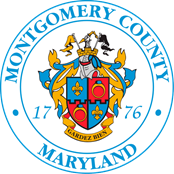Strengthen and Streamline the County’s Economic Development Strategy

In May of 2021, the Council enacted Bill 10-21 to strengthen and streamline the County’s economic development strategy. The bill tasks the Montgomery County Economic Development Corporation (MCEDC) with submitting an Economic Development Strategic Plan that will include clear target metrics, strategies and concrete measures for increasing business activity in the County.
Over the following six months, MCEDC began drafting the plan, which was developed in collaboration with industry, government and community stakeholders. MCEDC also took input from partner agencies and organizations, including the Planning Board and the County’s Workforce Development Organization, the County Executive, Council and County residents.
After review by the Council’s Planning, Housing and Economic Development (PHED) Committee, the Council unanimously voted in April 2022 to adopt the four-year Economic Development Strategic Plan through 2025.
The plan, Moving Forward Together: Strategic Priorities for a Unified Approach to Economic Development, aims to strengthen the County’s economic growth and includes target metrics, strategies and concrete measures for increasing business activity in the County.
Read the Economic Development Strategic Plan Read the Economic Development Strategic Plan
The plan will be formally adopted every four years and updated every two years based on any changes in County priorities and market dynamics. The current plan outlines four strategic priorities:
- Priority A: Accelerate innovation, economic drivers and entrepreneurship.
- Priority B: Provide greater workforce and educational opportunities.
- Priority C: Build livable communities that connect residents to jobs.
- Priority D: Create an inclusive economy for shared prosperity.
The Council continues to work closely with MCEDC to develop the strategies needed to grow business in Montgomery County. MCEDC partners with County and state officials to provide information on incentives, tax credits and County-led initiatives that support businesses. They also provide specialized support for businesses owned by a minority, woman, veteran or disabled person.
